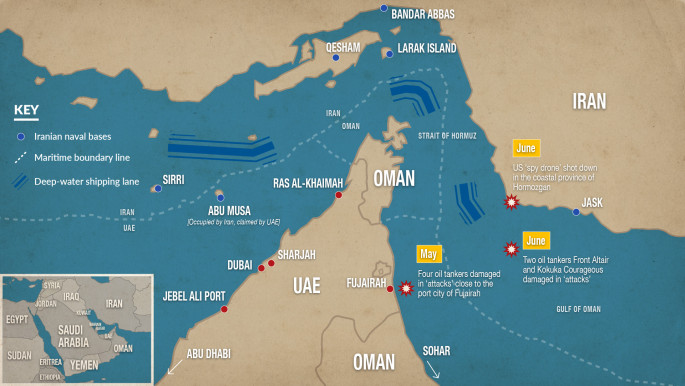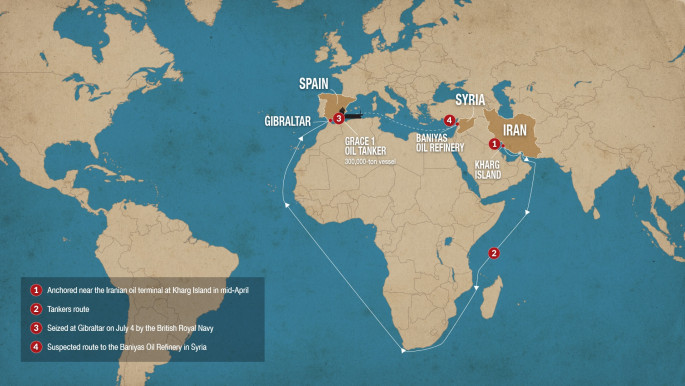Gibraltar-based Royal Marines detain Syria-bound supertanker carrying Iranian oil
In a statement, authorities on the British overseas territory, at the tip of Spain, said the port and law enforcement agencies, assisted by the Royal Marines, boarded the Grace 1 early Thursday.
It added that the vessel was believed to be headed to the Baniyas Refinery in Syria, which is a facility under the control of Bashar al-Assad-linked authorities and subject to the EU's Syrian Sanctions Regime.
The EU, and others, has imposed sanctions on Assad's regime over its continued crackdown against civilians. They currently target 270 people and 70 entities.
The Gibraltar authorities didn't confirm the origin of the ship's cargo but Lloyd's List, a publication specialised in maritime affairs, reported this week that the Panama-flagged large carrier was laden with Iranian oil.
Experts were said to have concluded that it carried oil from Iran because the tanker was not sending geographic information while in Iranian waters. According to a United Nations list, the ship is owned by the Singapore-based Grace Tankers Ltd.
According to the data firm Refinitv, the vessel likely carried just over 2 million barrels of Iranian crude oil. Tracking data showed that the tanker made a slow trip around the southern tip of Africa before reaching the Mediterranean.
The timing for the interdiction of the Grace 1 was politically sensitive as tensions between the US and Iran grow over the unraveling of a 2015 nuclear deal with President Donald Trump's withdrawal last year.
 |
| [Click to enlarge] |
In recent days, Iran has broken through the limit the deal set for its stockpile of low-enriched uranium and plans on Sunday to boost its enrichment.
Meanwhile, oil tankers near the Strait of Hormuz have been targeted in mysterious attacks as Iranian-backed rebels in Yemen launch bomb-laden drones into Saudi Arabia.
The US has rushed thousands of additional troops, an aircraft carrier, B-52 bombers and F-22 fighters to the region, raising fears of a miscalculation sparking a wider conflict.
There was no immediate reaction from Syria, which has suffered severe fuel shortages as a result of the civil war and Western sanctions that have crippled the country's oil industry, once the source of 20 percent of government revenues.
Iran, which has provided vital military support to Bashar al-Assad's regime, extended a $3 billion credit line for oil supplies beginning in 2013 but the Iranian aid dwindled as Washington restored tough sanctions.
In November, the US treasury department added a network of Russian and Iranian companies to its blacklist for shipping oil to Syria and warned of "significant risks" for those violating the sanctions.
Fabian Picardo, chief minister of Gibraltar, which has in the past been a transit port for energy shipments without known buyers, said he has informed the EU about developments.
In a statement, the British government welcomed the "firm action" by authorities in Gibraltar.
Follow us on Twitter @The_NewArab
 |
| [Click to enlarge] |



